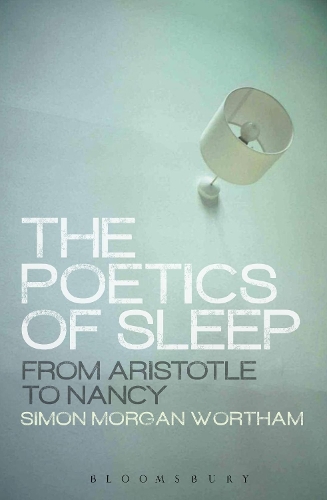
The Poetics of Sleep: From Aristotle to Nancy
(Hardback)
Available Formats
Publishing Details
The Poetics of Sleep: From Aristotle to Nancy
By (Author) Professor Simon Wortham
Bloomsbury Publishing PLC
Bloomsbury Academic USA
3rd January 2013
United States
Classifications
General
Non Fiction
128.4
Physical Properties
Hardback
192
Width 156mm, Height 234mm
449g
Description
To what extent does sleep constitute a limit for the philosophical imagination Why does it recur throughout philosophy What is at issue in the repeated relegation of sleep to the realm of physiological study (as in Kant, Freud and Bergson), in favour of promoting the critical investigation of dreams and dreaming as a key indicator of modernity Does philosophy entail a certain repression of the poetics of sleep in all its conceptual impossibility Through a series of engagements with key thinkers in modern European philosophy, this book rearticulates a poetics of sleep at the heart of some of its seminal texts. From the problematic yet instructive status of a Kantian discourse on sleep to the conceptual contradictions inherent in psychoanalytic thought and the rich possibilities of thinking 'sleep' in the writings of Bergson, Blanchot and Nancy, the book's aim is to dredge the remains of sleep - not to bring its secrets to the surface of waking life, but instead to draw closer to what falls under or away in thinking and writing 'sleep'.
Reviews
The Poetics of Sleep is impressive in its reach and largely persuasive in its perception of sleep as mirroring philosophy's fractured self-image ... An admirable and audacious book whose greatest achievement lies perhaps not in uncovering sleep as a revelatory tool for addressing philosophical history, but in beginning, with due care for the difficulty of the project, to think again about how to do philosophy -- Danielle Sands, Royal Holloway, University of London, UK * Textual Practice *
While Morgan Worthams book productively offers no concluding space for enabling us to sleep more easily, he does offer us a means of sleeping (and dreaming) in a more enlightened manner. -- Francesca Minnie Hardy, University of Aberdeen * French Studies *
Rich in scope and detail ... the books strength lies in the fact that it opens up and introduces territory I would not necessarily have considered -- Robert Meadow, University of Surrey, UK * Cultural Sociology *
It is precisely Morgan Worthams attentiveness to the question of the border between sleep and wakefulness, however, that signals an exemplary methodology that works with ease both within and without the tradition of philosophy, neither exhausting sleep as a philosophical theme nor as simply a position to espouse an attack on philosophical discourse. -- Marc Farrant * Los Angeles Review of Books *
With an impressive historical and philosophical range, Simon Morgan Wortham shows how the idea of sleep has been a constant complication for western thought: sleep both has a 'poetics' and also presents difficult problems for philosophy and science. In clear and elegant prose, Simon Morgan Wortham explores issues of consciousness, representation, biology, physiology and writing in a fascinating way that will keep readers wakeful. -- Robert Eaglestone, Professor of Contemporary Literature and Thought at Royal Holloway, University of London, UK
Sleep is 'beloved', as that great insomniac the Ancient Mariner says, 'from pole to pole'. But what is this love about What do science and philosophy have to tell us, and how can we know whether they are right The Poetics of Sleep confronts the reader with something akin to the paradox of Bach's Goldberg Variations: a project of this nature inevitably dallies with the pleasures of the soporific. Maintaining an admirable critical vigilance and intellectual restlessness, Wortham provides a rich and thought-provoking survey of sleep theory, from Plato to Jean-Luc Nancy. -- Nicholas Royle, Professor of English at the University of Sussex, UK
Rather wonderfully on two occasions Morgan Worthams book undertakes rhetorical respites from the philosophical text and instead drifts off into textual reveries of Paul Celans Edgar Jene and the Dream about the Dream (in Jacques Derrida, Writing and Difference (London: Routledge, 1995)) and Becketts Cascando and Company where enunciator and enunciation become unclear and the experience of colour is synaesthetically vocalized. Morgan Worthams book productively offers no concluding space for enabling us to sleep more easily, he does offer us a means of sleeping (and dreaming) in a more enlightened manner. -- Francesca Minnie Hardy, University of Aberdeen * French Studies *
Author Bio
Simon Morgan Wortham is Professor of English and co-director of the London Graduate School at Kingston University London, UK.
